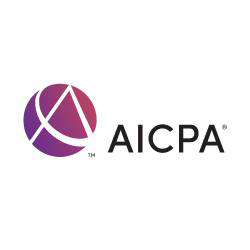Author: Doug Van Dyke, CEO, Leadership Simplified
This article originally appeared in the Winter 2025 issue of the South Carolina CPA Report
As CPAs, time is your most valuable asset. Sometimes, it can feel like there’s never enough time to get everything done. However, by implementing some simple time management strategies, you can take control of your day and achieve peak productivity.
Understanding Procrastination
One of the biggest obstacles to effective time management is procrastination. Recognizing the type of procrastinator you are is the first step in overcoming this challenge.
There are six types of procrastinators:
- Perfectionists: These individuals delay starting or finishing tasks because they fear they won’t live up to expectations.
- Simplifiers: They want life to be easy and resist complications.
- Risk Avoider: These individuals are stymied by the risks associated with a project.
- Rebels: They rebel against rules and prefer to set their own schedules.
- Thrill Seeker: These individuals get an adrenaline kick out of last-minute deadlines.
- Yes-Man: They say “yes” to projects from everyone and can’t establish priorities.
Day Planning
Day planning is a powerful tool for time management. It involves strategically planning how your day will unfold, allowing you to take charge and make the most of your time.
To create a day plan, follow these steps:
- Prepare for each task by gathering necessary materials and setting clear objectives.
- Identify who you need to proactively contact the next day to ensure smooth workflow and collaboration.
- Make a note of any calls you need to return or reinitiate the next day to stay organized and maintain momentum.
- Set aside time near the end of each day to review what you have accomplished on your to-do list and create a day plan for the next day.
Alternative to Day Planning
If day planning doesn’t suit your style, consider the “Top-10” method. This involves listing your top 10 tasks for the day in order of importance and checking them off as you complete them.
Day Chunking
Day chunking is another effective time management technique. It involves thinking in terms of global time blocks rather than specific tasks. For example, you might allocate a chunk of time for focused work, another for meetings, and another for communication and emails. This approach allows for better time utilization and prevents fragmentation.
Planning for Action
Creating an action plan is essential for achieving your goals. It’s a living document that outlines the steps needed to accomplish a specific objective.
Here are six steps to the action planning process:
- List the tasks involved.
- Assign responsibilities for each task.
- Set due dates to ensure timely completion.
- Determine how you will measure progress and success.
- Regularly review and update the plan.
- Communicate the plan to your team and lead them to world-class execution.
Time management is essential for success, especially during busy season. By understanding procrastination, utilizing day planning or the “Top-10” method, embracing day chunking, and creating action plans, you can take control of your time and achieve peak productivity. Remember, effective time management is not about squeezing as much as possible into your day; it’s about prioritizing tasks, setting clear goals, and implementing strategies that work best for you.
Until next time, be well!


